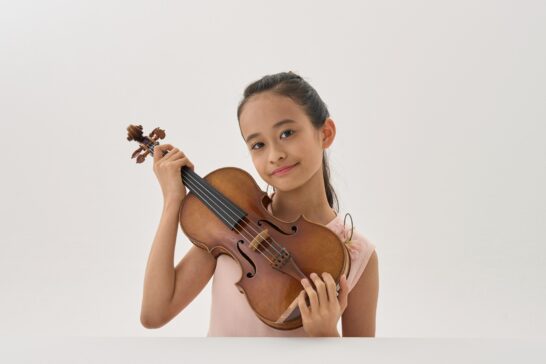Spotlight on Rosalyn Tureck

Best known as an expert on Bach, keyboardist and musicologist Rosalyn Tureck’s career spanned many facets of classical music, from historical performance practice to the development of electronic instruments and the contemporary music of her time. Tureck was born into a musical family of Jewish-Russian immigrants to the U.S., began studying piano at 8, and soon became fascinated by electronic instruments after hearing Leon Theremin perform. By 16, she auditioned and was accepted at the Juilliard School, where she studied piano with Olga Samaroff. In New York, she also came into contact with Theremin again, receiving an internship with his ensemble and performing on many of his electronic instruments in venues including Carnegie Hall.
As her career began to take off, Tureck popularized performing all-Bach programs on the piano. At the time, a movement of “authenticity” in performance was current among many classical musicians, emphasizing historical accuracy and performance practice. Tureck disagreed, instead advocating for a more balanced view that considered historical traditions but also took advantage of modern advances and interpretations. She illuminated this concept in many of her performances, undertaking programs such as performing a single Bach work on a harpsichord, a modern piano, and an electronic keyboard, to illustrate differences in sonority and style. She would eventually use the term “absolute music” to describe Bach’s work, holding that his music represented a form of art that stood on its own regardless of differences in sound and style, or whether it was performed on a harpsichord of the composer’s time or a modern Moog synthesizer.
At the same time, she was a dedicated proponent of new music, premiering new works by leading composers including William Schuman, Aaron Copland, and Roger Sessions, and spending time with Arnold Schoenberg and Leonard Bernstein. Her concert series “Composers of Today” helped spur the careers of the day’s composers, presenting their music for audiences of fellow composers, musicians, and publishers.
Today, Tureck’s legacy lives on not just through her performing career, but through her Bach scholarship. In addition to performing his music extensively and contributing to discussions of style and practice, she wrote several treatises on Bach, including the three-volume Introduction to the Performance of Bach. She also founded the Tureck Bach Research Institute, dedicated to further exploring a balance of musicology and performance practice in Bach’s music. In 2015, the Tureck Bach Institute merged with the Curtis Institute of Music, formally gifting a huge archive of documents, recordings, and research from Tureck’s career and establishing a named student fellowship at Curtis.


